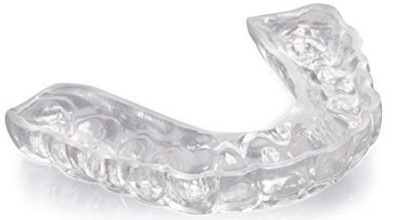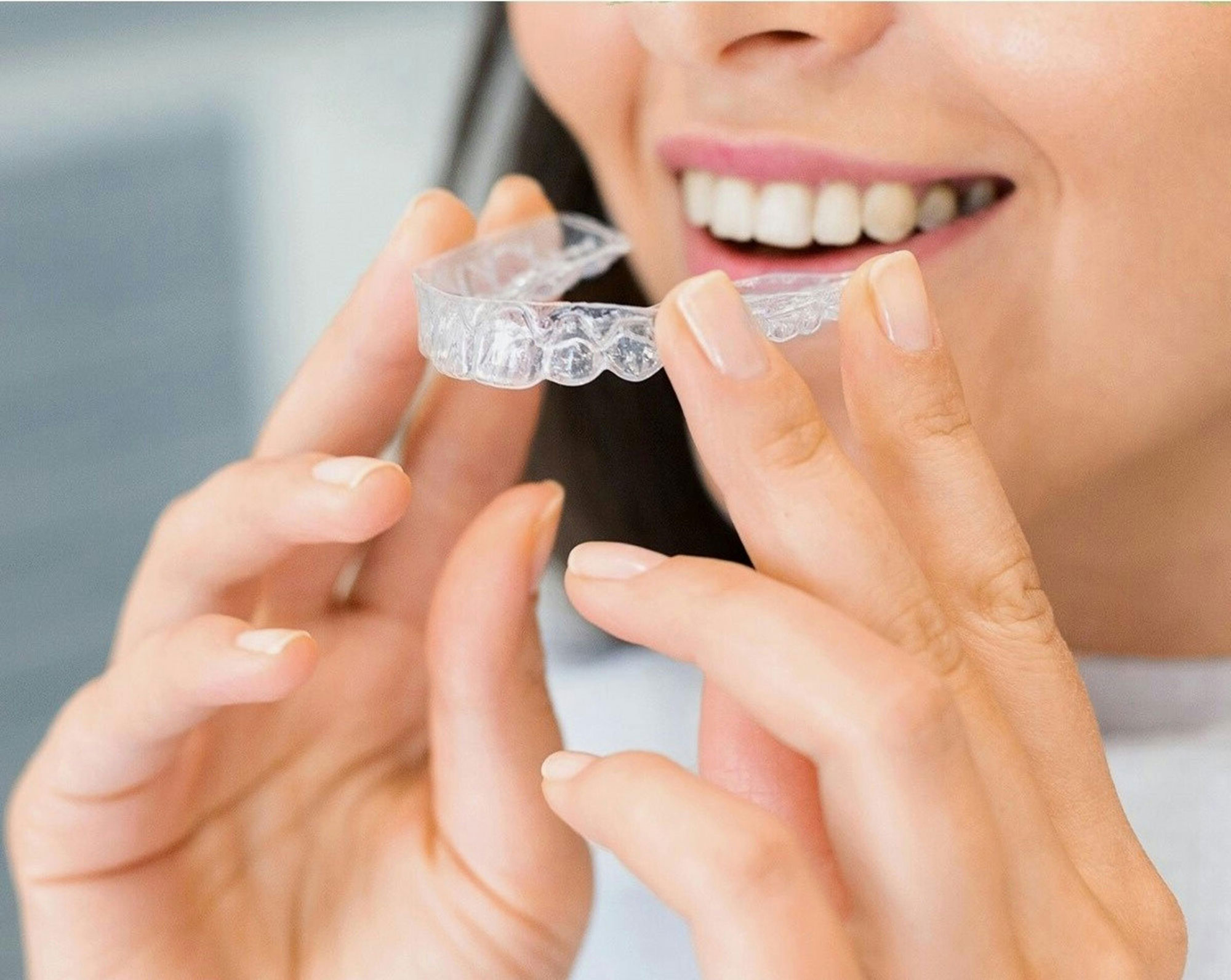Bruxism and Night Guards
One of the key principles of holistic dentistry is the avoidance of materials that could potentially have adverse effects on the patient's health, especially those who suffer from multichemical allergy (MCA). Many patients may not be aware, but night guard material may contain substances such as heavy metal, gluten, or BPA. For individuals with gluten allergies or those who are looking for a clean, healthier dental approach, it is essential that dental materials are carefully selected to avoid any potential reactions or complications.

- Risks of Not Using Biocompatible Dental Materials
- What are the signs of teeth grinding?
- Holistic Approach to TMJ Evaluation
Holistic Dentistry and Biological Dental Materials
Holistic dentistry emphasizes the use of biocompatible dental materials that are non-toxic and compatible with the body's natural biology. Unlike traditional dental materials that may contain harmful chemicals such as heavy metals, mercury, fluoride, or BPA (Bisphenol A), biological dental materials are chosen with the patient's health and safety in mind.
Risks of Not Using Biocompatible Dental Materials
Furthermore, individuals who grind their teeth may be at increased risk when non-biocompatible materials are used. Night guards, commonly prescribed for teeth grinding, also called bruxism, can contain BPA and gluten, which have been associated with negative health effects, and potentially cause allergic reactions in patients. In addition, these materials may contribute to the development of conditions such as chronic inflammation or autoimmune disorders.
Given that these guards are worn for extended periods of time, continuous exposure to chemical toxins can be concerning for patients' overall health.
What are the signs of teeth grinding?
Teeth grinding (bruxism) is a common dental condition that often goes unnoticed. However, there are several signs and symptoms that may indicate a problem:
Worn tooth enamel: Teeth grinding can wear down the enamel, leading to increased tooth sensitivity and susceptibility to decay.
Jaw pain or stiffness: Grinding can strain the muscles in the jaw, leading to discomfort or pain, especially in the morning.
Sleep disorder: Many patients grind and clench when they are asleep. If left untreated, teeth grinding and clenching can lead to sleep disorders such as sleep apnea and snoring.
Headaches: Chronic grinding can result in tension headaches, particularly upon waking.
Fractured teeth or fillings: The excessive pressure from grinding can cause teeth or dental restoration damage. (Remember, teeth can exert over 200 lbs of force!) Some damages may lead to the loss of the tooth.
Increase release of toxicity: Did you know? If you had toxic restorations like mercury fillings or porcelain fused metal crowns, grinding can increase the release of toxins into your body.
Holistic Approach to TMJ Evaluation
In holistic dentistry, the evaluation of temporomandibular joint (TMJ) function is integral to assessing patients' overall oral health. A thorough TMJ exam involves assessing the muscles of the jaw, which includes palpating the muscles for tenderness, checking for clicking or popping sounds, and assessing the range of motion of the jaw. In addition, any imbalance or dysfunction of the muscles may cause catastrophic effects to the whole-body health as muscles are interconnected just like how teeth are interconnected with our body.
By taking a holistic approach to TMJ evaluation, dentists can identify underlying issues related to teeth grinding or clenching and develop personalized treatment plans to address the root cause of the problem. This may include the use of biocompatible materials for dental restorations or the prescription of night guards made from safe, non-toxic materials.
Holistic dentistry has been gaining attention as it prioritizes not just oral health, but the overall well-being of the patient. Holistic dentistry, also known as biological dentistry, considers the interconnectedness of oral health with the rest of the body. At the core of this philosophy lies the meticulous selection of dental materials that are biocompatible, alongside the biological dentist's comprehension of the functional connection between the teeth and the rest of the body.
Holistic dentists Seattle ensure that each patient receives personalized care and advice on how to maintain their oral health, as well as providing treatments that are tailored to the individual's needs. We are committed to providing the highest quality of integrative dentistry and ensuring that our patients are comfortable and relaxed throughout the process. We are dedicated to helping our patients achieve optimum dental and whole-body health while maintaining a beautiful smile. If you're ready to experience the best biological dental care, please contact a natural dentist near me at (206) 728-1330 or visit us at 2107 Elliott Ave Ste 210, Seattle, WA 98121. We will be happy to guide you further.
MON - SUN 8:00 am - 5:00 pm
2107 Elliott Ave Ste 210,
Seattle, WA
Phone : (206) 728-1330Text Us : (206) 728-1330





